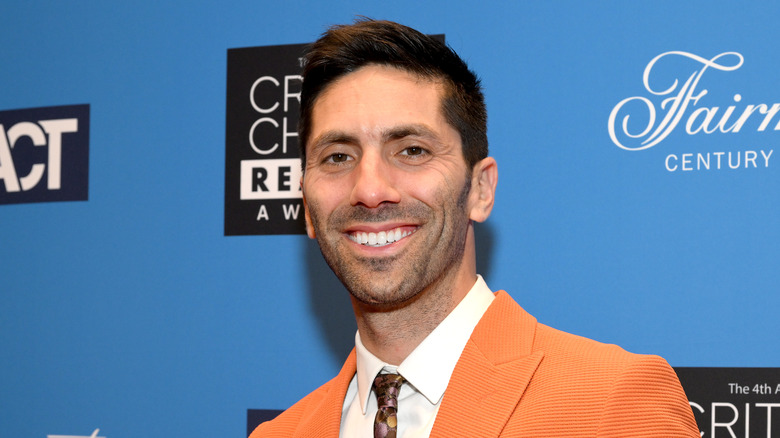Catfish: Who Catfished Nev In The Original Documentary Explained
As language continues to evolve throughout the ages, new words and phrases regularly come and go throughout all sections of society. However, occasionally a bit of slang catches on so ubiquitously that it becomes a part of just about everyone's vernacular. This is the case with the term "catfish," which we all generally accept to mean someone who deceives you online by pretending to be someone else.
Still, what many who use the term might not know is that it actually comes from the 2010 documentary of the same name. "Catfish" follows Nev Schulman, whose online infatuation with a girl named Megan is filmed by his brother and his friend. Of course, as is the case with episodes of the MTV series "Catfish: The TV Show" that followed, Nev eventually discovers that he has been misled by someone else behind the person on the screen. In his case, he has been tricked by a woman named Angela Wesselman.
As it turns out, Angela is a troubled middle-aged woman who has created dozens of fake profiles online to live alternate lives and interact with people as a fantasy version of herself. Ultimately this makes "Catfish" something of a tragic character study, rather than "The Blair Witch Project" style horror film that it was initially marketed as. Still, the film is no less effective, despite its marketing basically catfishing the audience themselves into watching it.
Angela lives a stressful life and escapes online into other personas
It's revealed toward the end of "Catfish" that Angela Wesselman uses countless different online profiles to keep the ruse with Nev Schulman going. Furthermore, the covers of songs that she sends him, purported to be her own, are also stolen, including a cover of "Wild Horses," which was originally performed by The Sundays.
Furthermore, the paintings that began their correspondence, which were meant to have been painted by an 8-year-old named Abby, are also creations of Wesselman, who turns out to have a talent for painting herself. Though Schulman is initially angry about all of the deception, he comes to forgive Wesselman in the end and remains friendly with her.
As for the term "catfish," it comes from Wesselman's husband, Vince. He explains to the camera during an interview that when cod is transported across the ocean, fishermen will put a catfish in with the smaller fish to keep them swimming. He suggests that there are people who are also catfish, like his wife, who keep others on their toes. In the end, this is the ultimate message that "Catfish" delivers: that people, especially those online, are often not what they appear to be.

